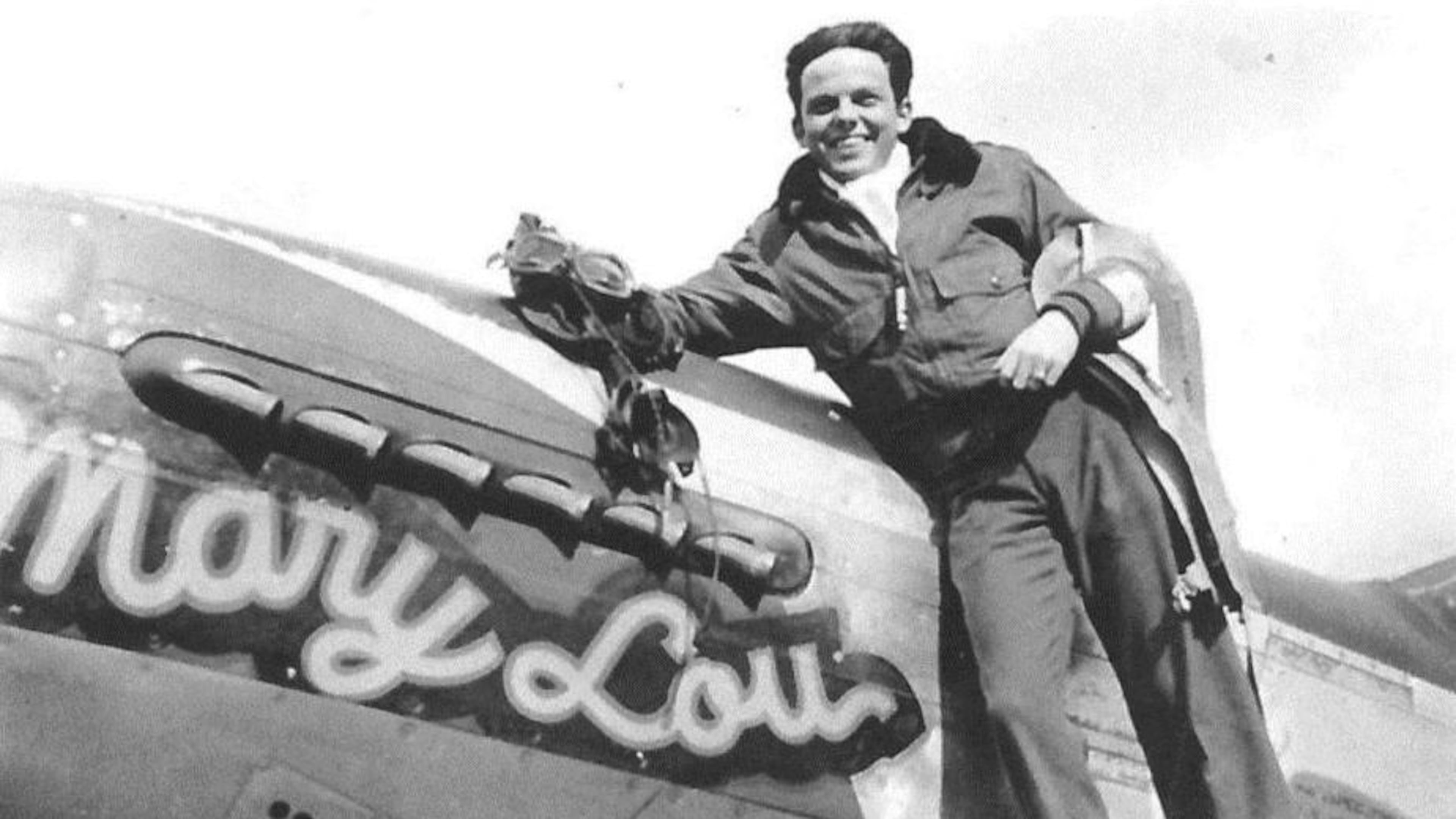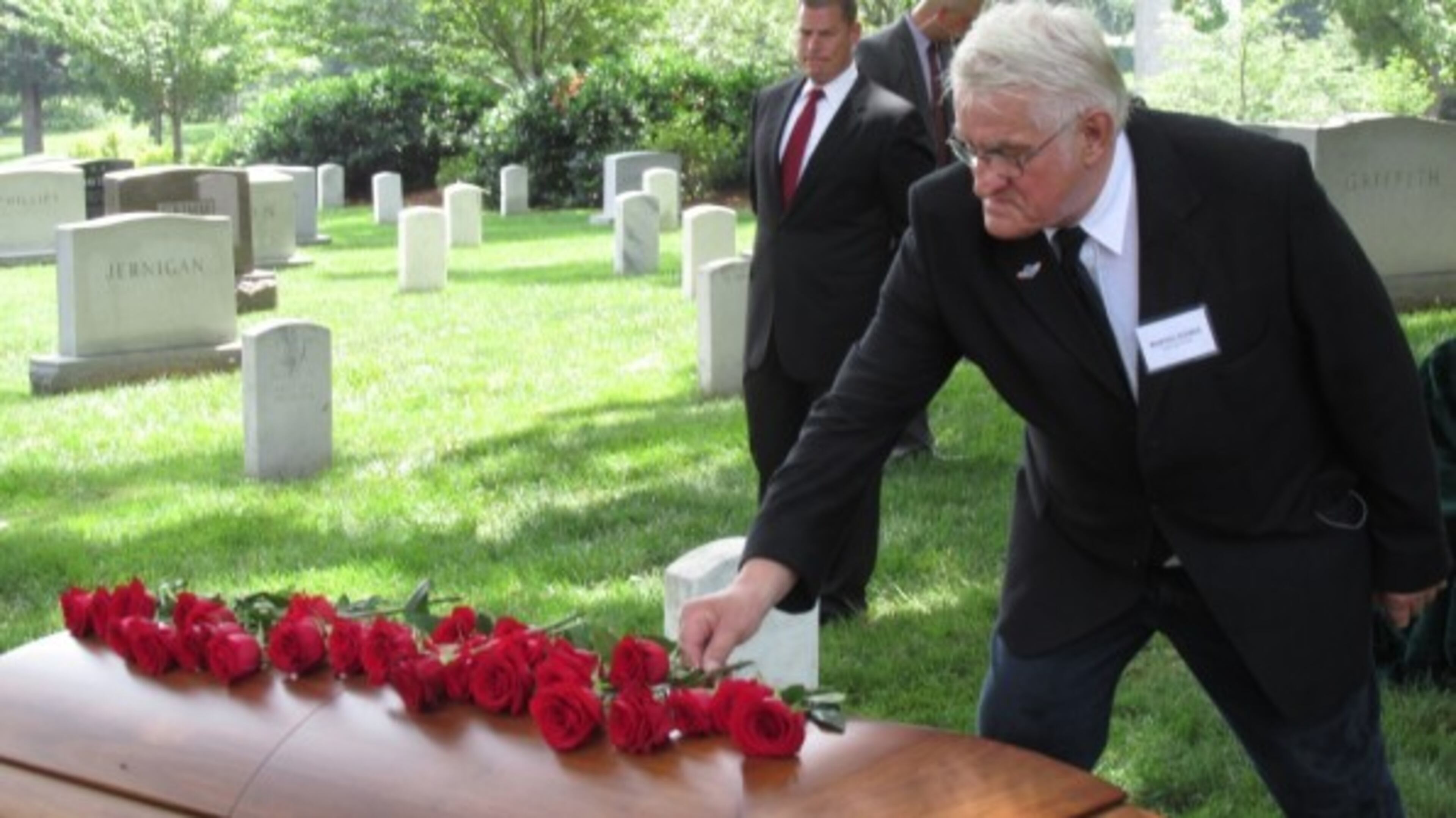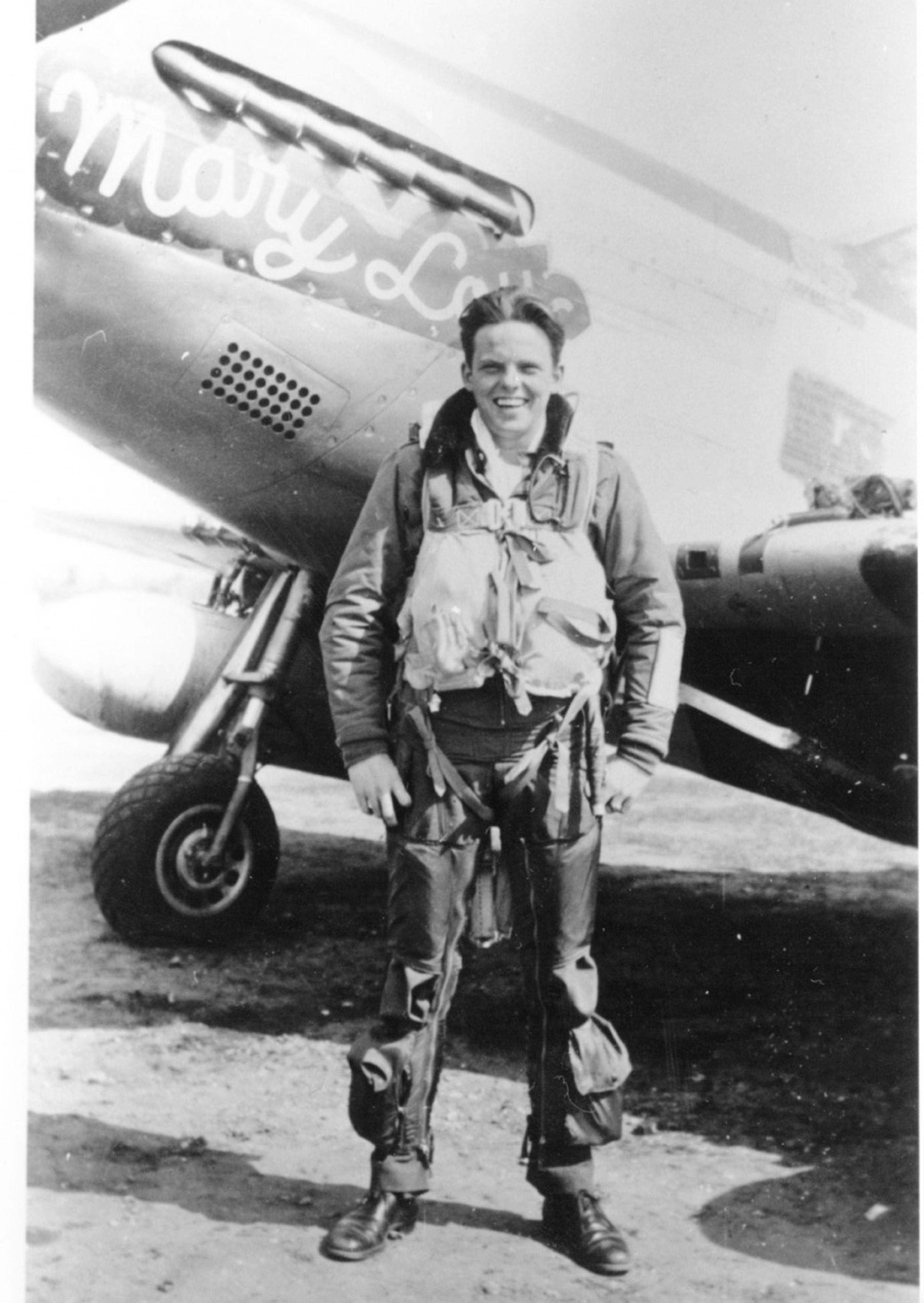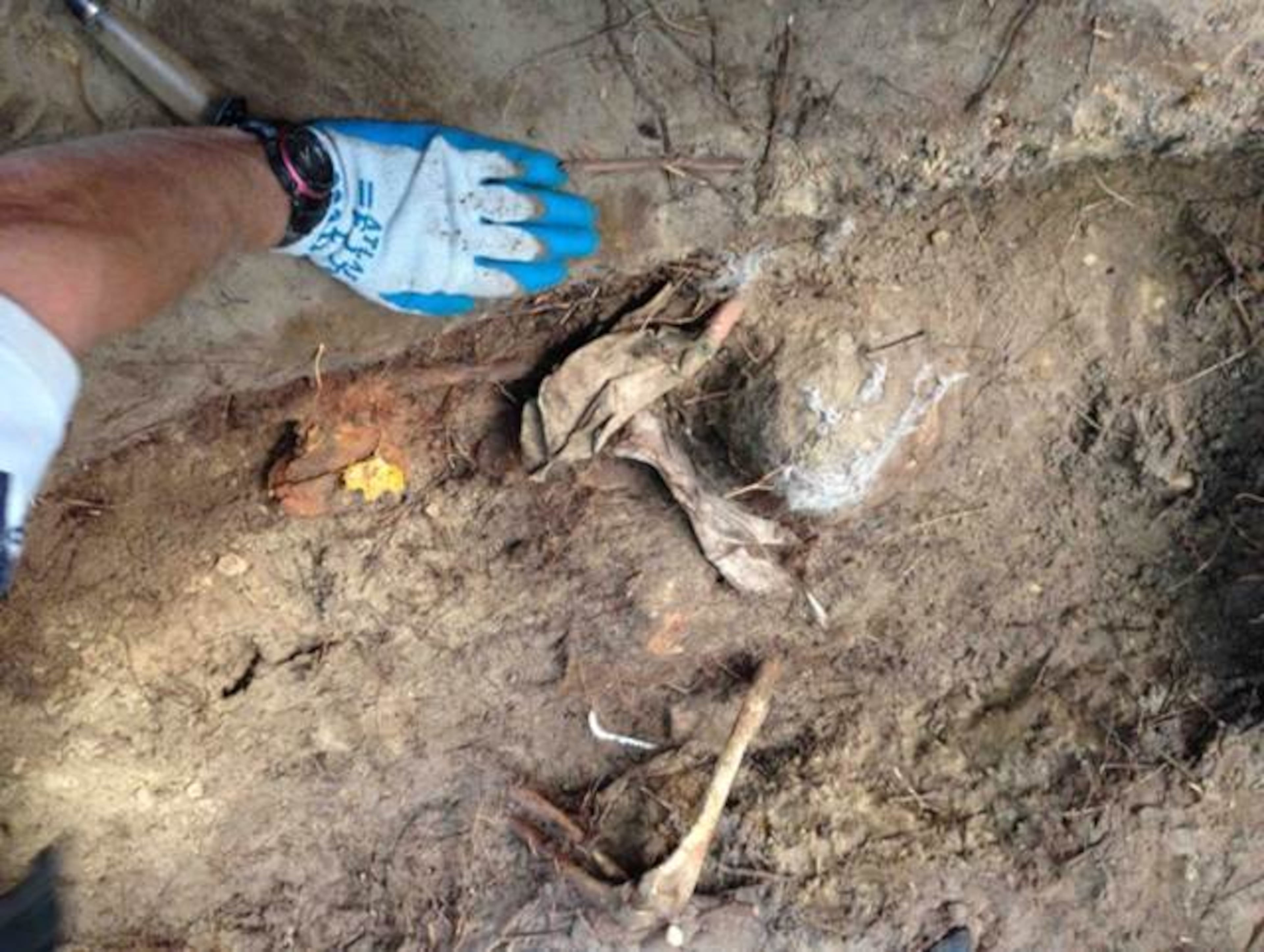German citizen, class ring, help locate a missing WWII fighter pilot

In 1945, when he was five years old, Manfred Römer saw a fighter plane plunge into the woods near his home in northern Germany.
Römer ran away. But he never stopped thinking about that crash. Decades later he returned to that patch of woods and found a piece of debris from the Mustang P-51, triggering a search involving U.S. and German agencies.
He led them to an area in the former East Germany where they found skeletal remains in a shallow grave. Still on the finger of the deceased airman was a ring from the Riverside Military Academy class of 1940, with the initials "JWH" inscribed on the inside.
The pilot was Lt. John W. Herb, a Cleveland native who attended military school in North Georgia and enlisted in the Air Corps after the attack on Pearl Harbor. Today, on Pearl Harbor day, at Riverside Military Academy in Gainesville, the school and its 500 cadets honored Römer with a full-dress parade for helping to bring their schoolmate back to the U.S.

Earlier this week Col. Bill Gallagher, commander of the academy, picked up Römer and his son at the airport and brought them to Gallagher’s home in Gainesville to speak with the two about the search for Herb. (They had traveled to Atlanta courtesy of Riverside.)
Gallagher knows only a little German; Römer speaks halting English, but they managed a conversation at the kitchen table.
Römer, 77, had a personal investment in seeing the remains returned to the U.S., he told Gallagher. His own father, who fought with the Wehrmacht on the Russian front, died in a POW camp and his body never came home. “He knew what it felt like not to know the full story, or get the remains back,” said Gallagher. “It was emotional for him.”

Lt. John W. Herb flew with the 359th Fighter Group, escorting bombers over Germany and occupied Europe. On April 13, 1945, he was returning to his base in Norfolk, England from a mission over Gustrow, Germany, when he and other American fliers took an opportunity to strafe enemy aircraft that were parked in an airfield below.
His Mustang was damaged during the exchange, and he attempted a landing, crashing into a wooded area near Rosien, southeast of Hamburg. According to Gallagher, Herb survived the crash but was shot by a German soldier and left in a shallow grave.
Air searches failed to locate the crash site, according to the Cleveland Plain Dealer, and ground searches were complicated by the fact that the site ended up under Soviet control in East Germany.

In 2006 Römer returned to the area and discovered the debris. German authorities took control of the site, and finally, in 2015, Herb’s remains were returned to the U.S. for a burial with full honors at Arlington National Cemetery.
Herb was awarded the Purple Heart, several campaign medals and the Distinguished Flying Cross. Römer attended that burial, along with 31 graduates of Riverside.
After the ceremony Herb’s family presented his class ring and flight goggles to Riverside. Those keepsakes, along with photos of Herb as both a Riverside cadet and Air Corps pilot, are displayed in a case at the Riverside museum, in an exhibit dedicated to his memory.


